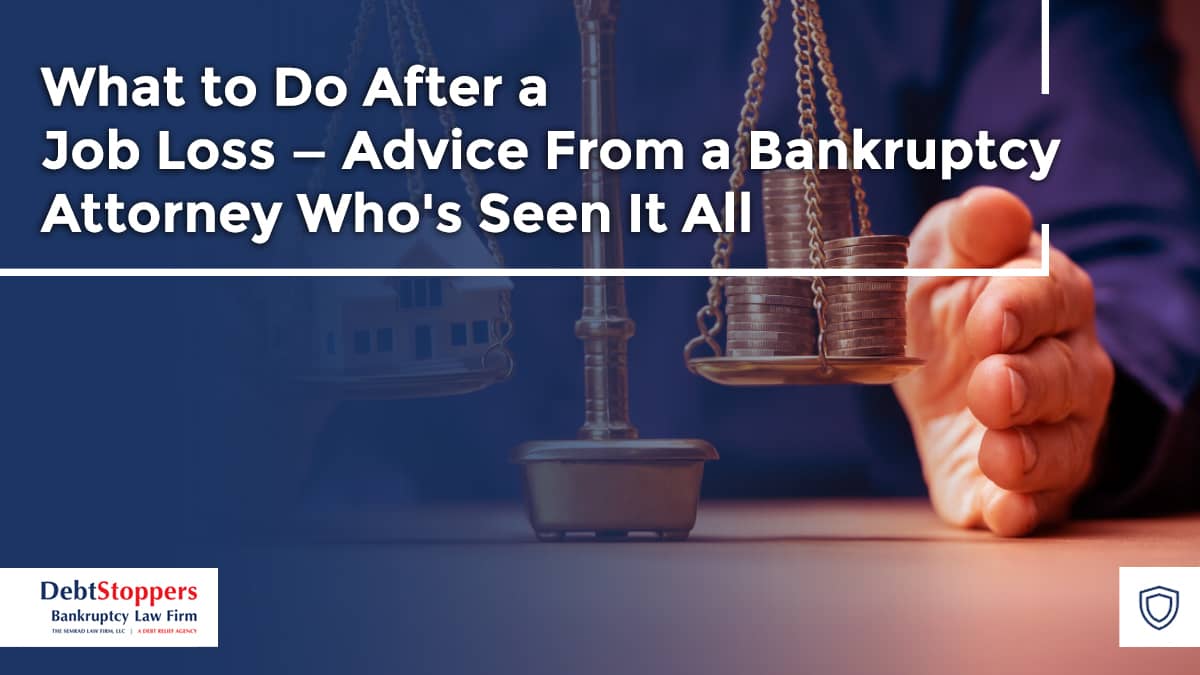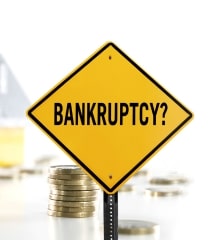What to Do After a Job Loss — Advice From a Bankruptcy Attorney Who's Seen It All

Losing a job is one of life’s most destabilizing experiences. In an instant, your financial foundation can feel like it’s crumbling—and the pressure to keep everything afloat starts mounting quickly.
As a bankruptcy attorney who's helped thousands of people navigate financial distress, I want to offer a perspective you won’t often hear from the mainstream narrative. While studies often cite medical bills as the number one reason for bankruptcy, my experience says otherwise. At my firm—which is the largest consumer bankruptcy filer in the country—the top causes I see are:
-
Job loss
-
Divorce
-
Illness—not the medical bills, but the illness itself preventing someone from working.
The common thread? A sudden loss of income.
Unfortunately, many people don’t reach out for help until they’ve already drained their savings, maxed out their credit cards, or cashed out retirement accounts. I understand the reasoning. We’re told to “do the right thing” by paying our bills, even when it means sacrificing everything else. But this is often a mistake.
If you’ve lost your job or your income has dropped dramatically, you need to preserve your cash.
I’ll say it plainly: Don't spend your savings trying to make creditors happy.
Instead, here’s what you should focus on:

1. Prioritize Essentials
Your top financial priorities should be:
-
A roof over your head
-
Food on the table
-
Medical care
-
Transportation
These are non-negotiables. If you're using your unemployment benefits, severance, or emergency fund to make credit card payments while skipping groceries or rent, you’re putting yourself at greater risk.
2. Pay the Minimum—Or Nothing at All
If you’re struggling, pay the minimum on debts until your income stabilizes. If you have to choose between paying the rent and paying the credit card, pay the rent. Missing a few payments will hurt your credit score, yes, but your credit can be repaired. Rebuilding your health, housing, or mental well-being is much harder.

3. Talk to a Professional Early
You don’t need to be in total crisis to speak with a bankruptcy attorney. In fact, the earlier you understand your rights, the more tools you have at your disposal. Bankruptcy isn’t about failure—it’s a legal tool designed to give people a fresh start. And if it’s not right for you, we’ll tell you that too.
The key is being proactive, not reactive.
If you're feeling overwhelmed by your debt, take a moment to breathe—and then reach out. Whether or not bankruptcy ends up being your path, getting the right information early will protect your future.
Your job loss doesn’t define you. It’s a hard chapter, but it’s not the final one. Let’s make sure you don’t lose more than necessary while working to get back on your feet.
And remember: food, shelter, health, and peace of mind come first. Always.





